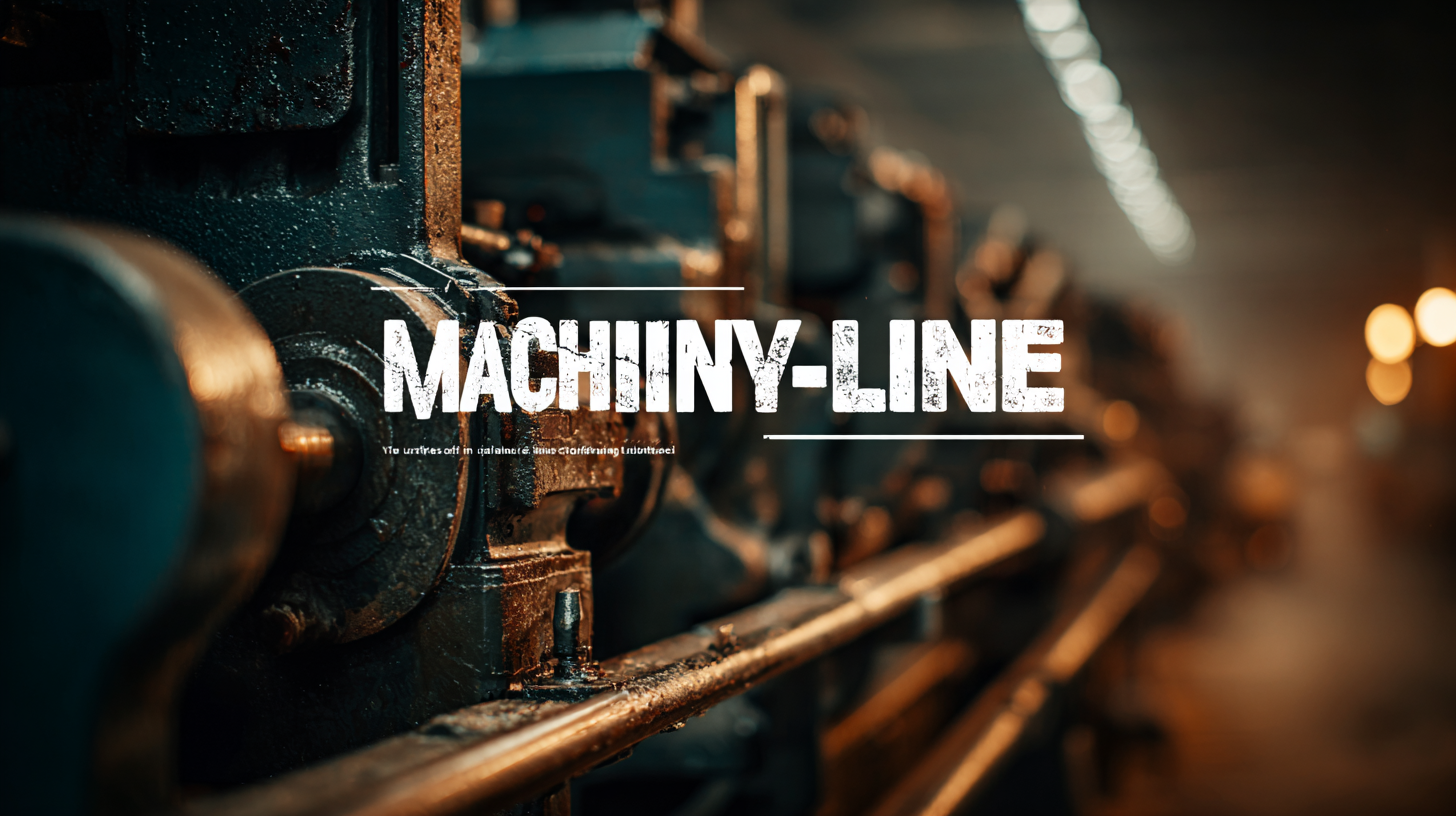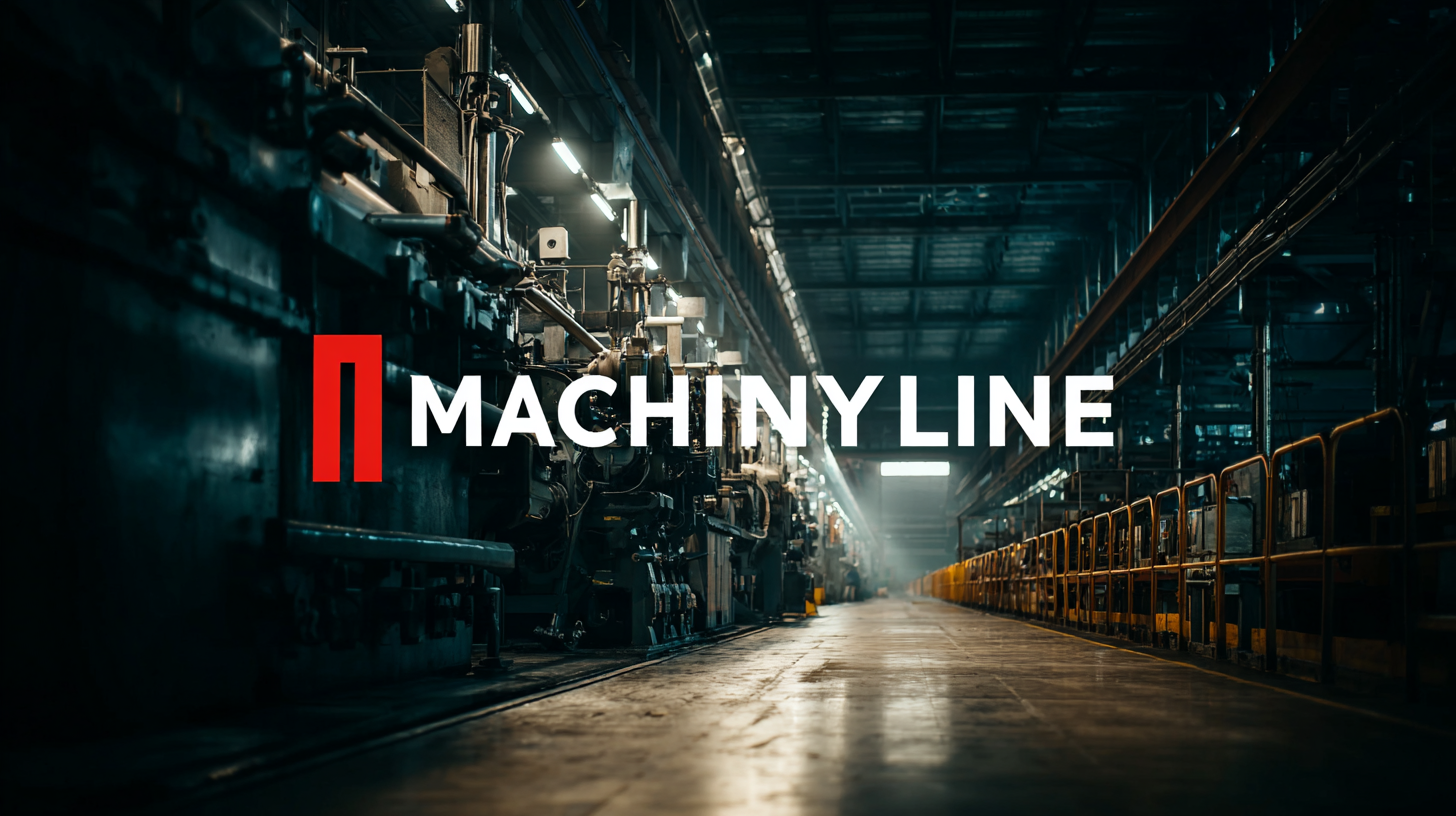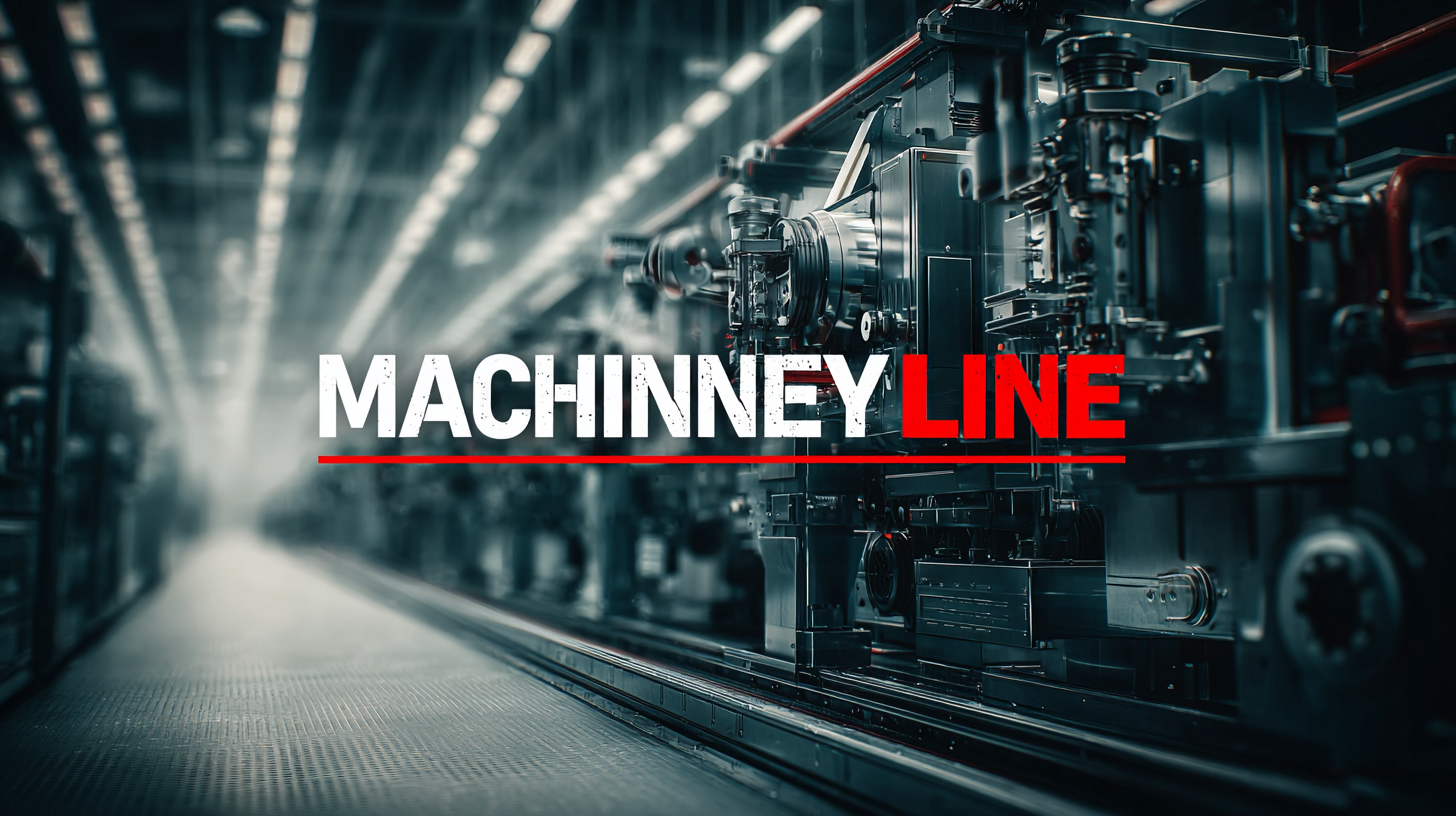Leave Your Message
- Phone
- E-mail
- Whatsapp
In today's fiercely competitive landscape, identifying top suppliers for the best Machinery Line in your industry is crucial for maintaining a competitive edge. According to a recent report by the International Trade Administration, the global machinery market is projected to reach $600 billion by 2025, driven by advancements in manufacturing technologies and growing demand for automation. This surge underscores the importance of selecting suppliers who not only meet stringent industry standards but also possess the capacity to deliver quality and innovation.

With the right approach to vendor evaluation, including considerations of industry certifications and digital capabilities, businesses can streamline their procurement processes and enhance operational efficiency. In this blog, we will explore effective strategies for identifying and selecting the best suppliers that align with your specific Machinery Line requirements, ensuring you stay ahead in an increasingly evolving marketplace.
In the machinery industry, supplier evaluation stands as a critical pillar for success. The impact of reliable suppliers on operational efficiency cannot be overstated. Evaluating potential suppliers enables companies to identify those who not only meet their quality standards but also align with their operational goals. Such evaluations often encompass an analysis of a supplier's financial stability, technological capabilities, and adherence to industry standards. This comprehensive assessment helps businesses mitigate risks associated with supply chain disruptions and poor quality materials.

Moreover, the importance of building long-term relationships with suppliers cannot be overlooked. A thorough evaluation process fosters partnerships that go beyond mere transactions. When suppliers understand the specific needs and expectations of their clients, they can innovate solutions that enhance productivity and efficiency in the machinery production line. This collaborative approach leads to better responsiveness and a more agile supply chain, ultimately positioning a company to better navigate market fluctuations and customer demands. By investing time and resources into supplier evaluation, businesses within the machinery sector can ensure they are equipped with the best tools and support to thrive in a competitive landscape.
Identifying top suppliers for your machinery line is crucial, especially when it comes to import and export certifications. One of the primary criteria for assessing supplier capabilities lies in their understanding of international regulations. Suppliers should demonstrate a comprehensive grasp of the standards required in your specific market.
Tips: Always request documentation that outlines the supplier's knowledge of compliance protocols and certifications relevant to your industry. This can reveal their commitment to maintaining high-quality standards.
Another important aspect to consider is the supplier’s ability to provide prompt and effective customer support regarding certification processes. A reliable supplier should have a dedicated team that can assist with any issues related to shipping, documentation, and legal requirements.
Tips: Evaluate their response times and willingness to assist during the initial discussions. This can indicate how they will perform once you establish a partnership. Their proactive communication style may save you valuable time during critical phases of import and export.
When evaluating machinery suppliers, understanding key certifications and standards is crucial for ensuring quality and reliability. Industry reports indicate that over 70% of companies prioritize supplier certifications as a significant factor in their procurement process. Certifications such as ISO 9001 (Quality Management Systems) and ISO 14001 (Environmental Management Systems) signify a supplier's commitment to maintaining high standards in quality and environmental responsibility. Moreover, compliance with these standards can directly impact a supplier's ability to deliver consistent products, which is vital in today's competitive manufacturing landscape.
Additionally, industry-specific certifications like CE marking in Europe or UL certification in North America provide insights into a supplier's adherence to safety and regulatory requirements. According to a study by MarketWatch, machinery manufacturers that align with these certifications report a 30% reduction in compliance-related issues, thereby enhancing operational efficiency. By carefully assessing these certifications, businesses can better mitigate risks associated with supplier performance, ensuring they partner with top-tier machinery suppliers equipped to meet industry demands.
| Supplier Type | Location | Key Certifications | Production Capacity (units/year) | Years of Experience |
|---|---|---|---|---|
| OEM Manufacturer | Germany | ISO 9001, CE | 100,000 | 15 |
| Component Supplier | China | ISO 14001, ISO 45001 | 250,000 | 10 |
| Parts Manufacturer | USA | ISO 9001, AS9100 | 150,000 | 20 |
| Machine Tool Supplier | Japan | JIS, ISO 9001 | 80,000 | 30 |
| Automation Supplier | South Korea | ISO 9001, UL | 200,000 | 12 |
Conducting thorough supplier audits and assessments is essential for identifying top suppliers in your industry, particularly when it comes to selecting the best machinery line. One effective strategy is to create a comprehensive checklist that evaluates key aspects such as quality assurance processes, production capabilities, and financial stability. By systematically examining these factors, you can ensure that the supplier you choose is reliable and aligned with your operational standards. It’s also crucial to assess their track record regarding compliance with industry regulations, as this can significantly influence the overall performance of your machinery.
Moreover, engaging in on-site visits is an invaluable tool during the assessment process. A firsthand look at the supplier's facilities can provide insights into their manufacturing processes, equipment conditions, and workforce expertise. This direct interaction allows for a deeper understanding of their operational practices and facilitates discussions about potential collaboration. Additionally, gathering feedback from other clients who have worked with the supplier can further validate your findings and help you make informed decisions. Ultimately, a thorough audit and assessment process not only minimizes risks but also lays the foundation for a fruitful partnership with top suppliers in your industry.
Identifying reliable machinery suppliers is crucial for businesses striving for efficiency and competitiveness. One effective method is to leverage industry networks, which not only provide insights into supplier performance but also help businesses gain access to curated lists of top suppliers. According to a report by the Machinery Suppliers Association, 78% of companies that actively engage in industry networks find more reliable suppliers compared to those who do not participate.
Industry networks often consist of professionals who share their experiences and recommendations, which can significantly reduce the time spent on supplier vetting. For instance, a recent study published in the Journal of Industrial Procurement found that firms participating in these networks can lower procurement risks by up to 35%. Engaging with fellow industry players enables businesses to gather valuable feedback on supplier reliability and quality, ensuring that they make informed decisions when selecting a machinery supplier.
Furthermore, attending industry trade shows and conferences can enhance these networking opportunities, allowing companies to meet potential suppliers face-to-face. Data from the International Exhibition Association shows that 70% of buyers preferred suppliers they met at trade shows, emphasizing the importance of personal connections in establishing trust and reliability. By effectively utilizing these industry networks, businesses can streamline their supplier identification process and ultimately improve their operational efficiency.

